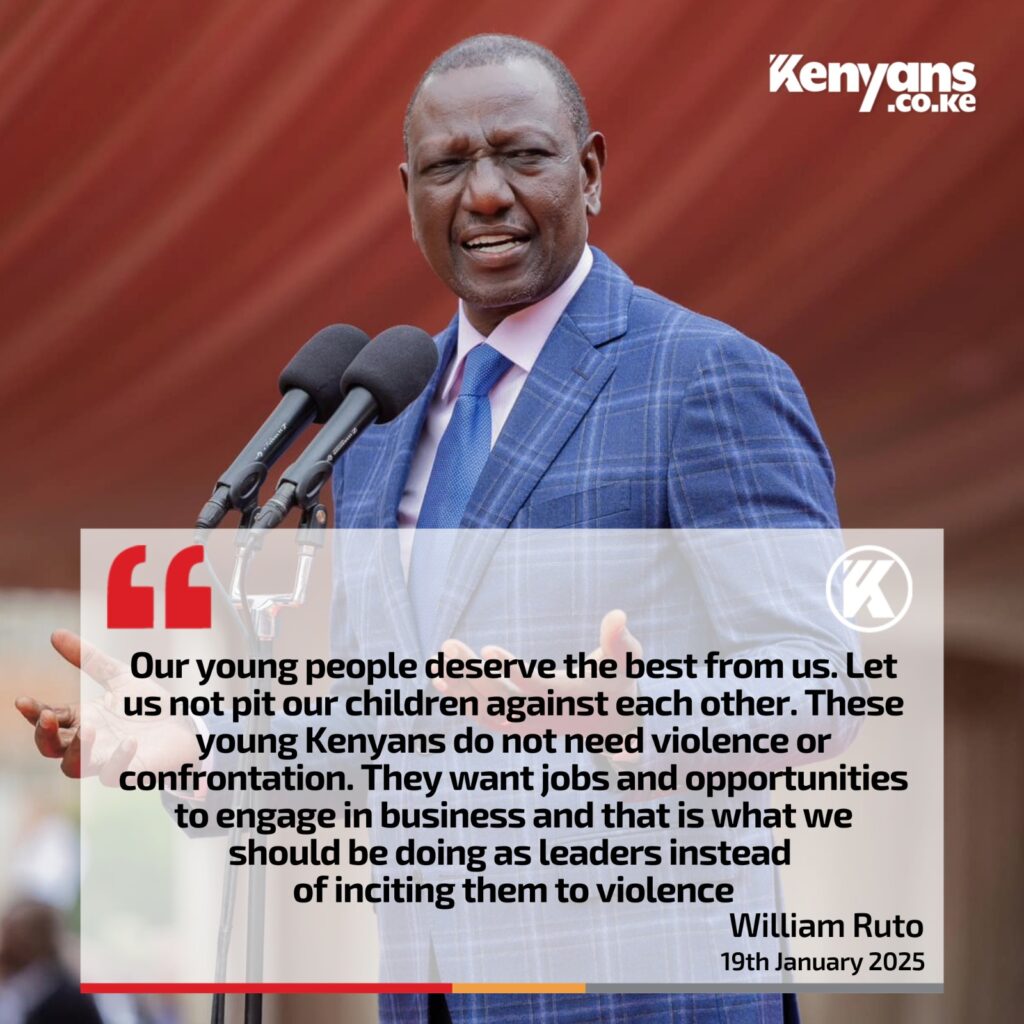President William Ruto has responded to former President Uhuru Kenyatta’s recent call for young people in Kenya to stand up and fight for their rights as reported by Kenyans.co.ke.
During a church service at Cheptais High School in Bungoma County, Ruto emphasized that youth should not be led into confrontations.
He stated that what young people need are jobs, not involvement in violence.
Ruto highlighted that leaders should help the youth find work opportunities instead of encouraging them to engage in conflicts.
He urged young Kenyans to focus on business and productive activities, steering clear of any form of violence.
This perspective contrasts with Uhuru’s earlier statements made during the burial of his cousin, Kibathi Muigai, where he encouraged young people to actively claim their rights and not allow their assets to be taken without resistance.
Uhuru’s comments sparked a debate, receiving both support and criticism from various groups.
Supporting President Ruto’s view, Environment Cabinet Secretary Aden Duale criticized Uhuru’s remarks, describing them as potentially inciting and harmful to national stability.

Speaking at an event in Garissa, Duale cautioned that such statements could lead to unrest and urged leaders, both past and present, to set a positive example for the youth.
He emphasized the importance of guiding young people away from violence and civil disobedience, advocating for peaceful and constructive ways to express their concerns.
This exchange between current and former leaders comes at a time when Kenya has seen significant youth-led movements.
In recent months, the country has experienced a rise in protests mainly driven by Generation Z and millennials.
These movements have been fueled by frustrations over economic hardships, unemployment, and perceptions of government corruption.
Notably, a proposed finance bill led to widespread demonstrations, with young professionals expressing their discontent over increased taxes and the high cost of living.
The protests have sometimes turned violent, resulting in casualties and drawing international attention to Kenya’s political and economic situation.
In response to the unrest, President Ruto took major steps, including dismissing a large part of his cabinet to address the concerns raised by the protesters.
He acknowledged the challenges faced by the youth and expressed a commitment to implementing policies aimed at reducing unemployment and fostering economic growth.
Despite these measures, the protests have continued, indicating deep frustration among the younger population.
The leaderless nature of these movements, organized mainly through social media platforms, reflects a change in how political activism is conducted in the digital age.
The differing viewpoints between President Ruto and former President Kenyatta highlight a broader discussion on the role of youth in societal change and the methods they should use to achieve their goals.
While Ruto advocates for peaceful engagement and economic empowerment as ways to address youth grievances, Kenyatta’s comments suggest a more assertive approach in claiming rights and resources.
The government’s approach to addressing the concerns of its younger citizens will likely play a crucial role in shaping the nation’s future.
